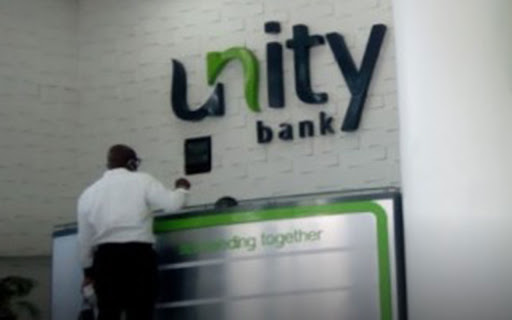Shares of Unity bank has been suspended by the NGX Regulation, the regulatory arm of the NGX Group.
At least, trading in the shares of other seven companies were also suspended for default in filing their relevant accounts for 2023.
In a market bulletin on Monday, the Head of the Issuer Regulation Department, Godstime Iwenekhai, said the suspension was effective immediately.
According to the market bulletin, the affected companies include Unity Bank, C&I Leasing Plc, Guinea Insurance, Lasaco Assurance, Mutual Benefits Assurance, NPF Microfinance Bank, Regency Alliance Insurance, and Secure Electronic Technology Plc.
Iwenekhai said, “Trading in the shares of the eight companies below have been suspended from the facilities of Nigerian Exchange Limited (NGX or The Exchange) effective today, Monday, 8 July 2024 for not filing their Audited Financial Statements for the year ended 31 December 2023.”
As per post-listing requirements, companies on the Exchange are mandated to submit their accounts and other documents within specified time frame.
NGX RegCo said that it acted by Rule 3.1 about the Filing of Accounts and Treatment of Default Filing, (Default Filling Rules), which said, “If an Issuer fails to file the relevant accounts by the expiration of the Cure Period, The Exchange will a) Send to the issuer a Second Filing Deficiency Notification within two business days after the end of the Cure Period
“b) Suspend trading in the issuer’s securities, and c) Notify the Securities and Exchange Commission and the Market within 24 hours of the suspension.”
Based on the rule, the suspension on trading in the shares of the affected companies would be lifted once they comply with the rules.
Insurance companies had experienced delays in filing their 2023 annual report due to the adoption of IFRS 17 standards.
IFRS 17 requires a company to recognise profits as it delivers insurance services (rather than when it receives premiums) and to provide information about insurance contract profits the company expects to recognise in the future.



























